Explore the dynamic world of Open Educational Resources and discover how OER Africa is driving the movement forward. This page is divided into two sections:
Articles: Our articles aim to deliver insights on OER-related themes that inform, spark conversation, and engage with the developing open education landscape, with a particular focus on Africa.
Updates: Below, the articles, you'll find updates on OER Africa’s latest initiatives, activities, and contributions to the OER community.
Articles
This section features targeted articles crafted specifically for educators, students, and the global Open Educational Resources (OER) community. The articles examine themes related to OER, offering insightful perspectives and information. The content seeks to inform, prompt discussion, and actively engage with the dynamic landscape of open education, particularly within the African context.

Following adoption of the UNESCO Open Educational Resources (OER) Recommmendation, UNESCO launched the Dynamic Coalition for the OER Recommendation on 2 March 2020
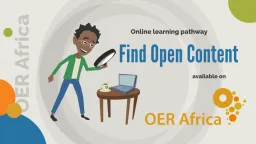
While many educators appreciate the value of openly licensed content, the issue is how to find these resources. OER Africa has prepared an interactive, multimedia rich, learning pathway on just this topic. It identifies a suggested simple set of procedures to find open resources that align with your curriculum requirements.
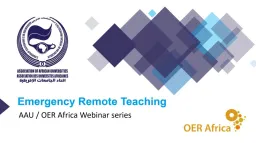
Trying to work out how to best teach your students during university shutdowns due to the COVID-19 crisis? Sign up for a webinar series on Emergency Remote Teaching, hosted by the Association of African Universities (AAU) and OER Africa. Register here.

World Book and Copyright Day on 23 April is a celebration to promote the enjoyment of books and reading. Now that so many of us are at home with our children because of COVID-19, we can explore the virtual world of children’s stories – all free to read and many openly licensed. Some wonderful book and reading resources are listed below.

This week, OER Africa shares some resources we consider useful for institutions in the midst of current restrictions of movement and the requirements to introduce remote teaching in many countries due to the COVID-19 pandemic. We have selected resources for universities, school management teams, mathematics, reading and writing, as well as our most popular downloads over the past six months.
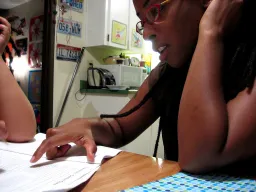
As the COVID-19 pandemic has spread, millions of learners and educational institutions globally have had to make rapid, unforeseen changes to how they run their learning programmes. Face-to-face teaching and learning have become impossible in many countries and there is uncertainty over when educational institutions will reopen their doors. This may have long-term effects on school programmes, examinations, and most importantly, learning.
Updates
This section provides updates on OER Africa’s initiatives and activities. Stay informed about our contributions to the OER community and how we are driving the open education movement forward.
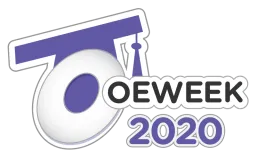
Founded in 2013 by the Open Education Global (previously Open Education Consortium), the goal of Open Education Week is to raise awareness and showcase impact of open education on teaching and learning worldwide. Open Education Week has become one of the most foremost global events recognizing high achievement and excellence in open education.
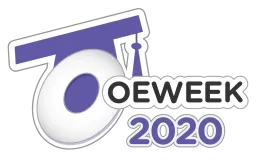
Open Education Week (OEW) aims to raise awareness and showcase the impact of open education on teaching and learning worldwide. It spotlights amazing work from over a dozen categories including live, face-to-face events, webinars, projects, and resources.

This report assesses students’ access to educational materials in select institutions within Commonwealth countries. The findings indicate that learners are now engaging with a complex ecosystem of learning materials, both print and digital, in a multitude of differing forms and formats, with various terms of use and durations of sustained access.

This paper demonstrates how the features and affordances of open learning have been developed in new and productive ways to provide school-based continuing professional development for teachers in Zambia.


The guidelines describe the whole process for designing and implementing OER policy in seven chapters, each representing a clear phase in the whole process. The chapters introduce the purpose of the phase and provide background information and references with practical examples for illustration.
